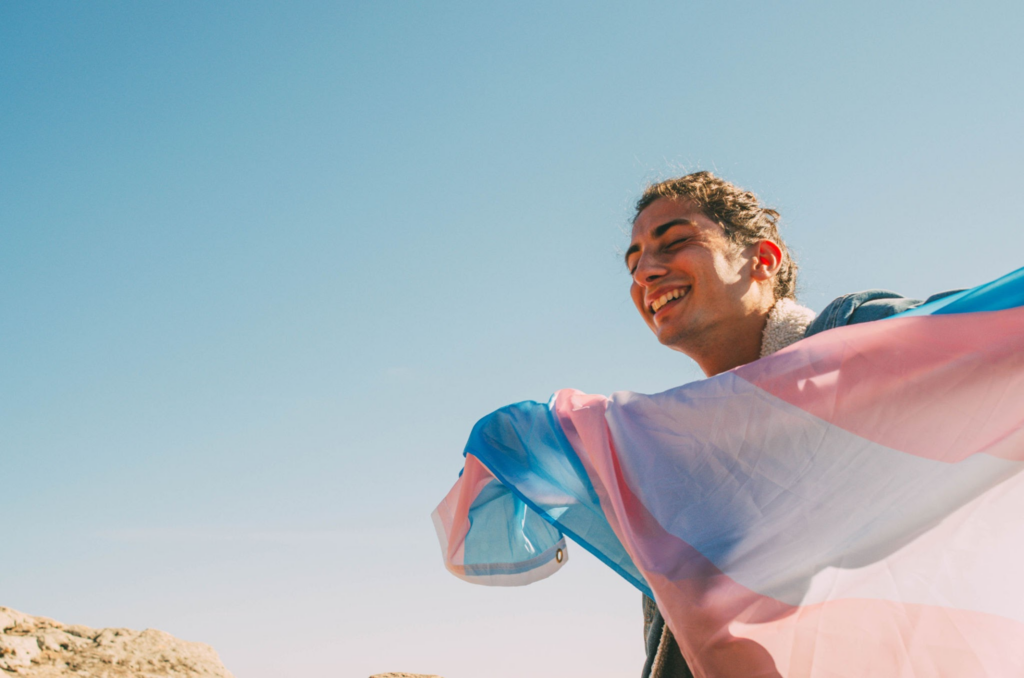Have you ever been called “mister” when you’re a miss, or “miss” when you identify as a man? That’s misgendering! It happens when someone uses language (pronouns, names, titles) that doesn’t match the gender a person feels inside. It might seem like a small thing, but trust us, it can sting.
Here’s the deal: Imagine you have a cool superhero name, like “Captain Whizbang!” But everyone keeps calling you “Boring Bob.” Not exactly empowering, right? That’s kind of how misgendering feels.
So, why does it matter? Because using someone’s correct pronouns and name is like acknowledging their superpower – their true identity! It shows respect and makes them feel comfortable. Just like you wouldn’t want to be called Boring Bob, nobody wants to be misgendered, accidentally or on purpose.

Table of Contents
Ouch! I Misgendered Someone. Now What?
Oops! We’ve all been there. Don’t panic! Here’s the good news: Most people appreciate a kind correction. Here’s how to handle it smoothly:
- Be chill: Take a deep breath and relax. A simple “Hey, I actually use ‘they/them’ pronouns” or “It’s Sarah, not Steve” will do the trick.
- Explain, don’t complain: If you’re comfortable, you can offer a quick explanation. For example, “I use ‘they/them’ pronouns because I identify as non-binary.” But remember, you’re not obligated to give a lecture!
- Let it roll: Sometimes, a simple “thanks” is enough. The person might just need a gentle reminder.
Remember, the key is to be kind and respectful. We all learn and grow!
Misgendering at Work: Turning the Tide
Work can be a drag when you’re constantly misgendered. Here’s how to navigate that tricky situation:
- Be clear and confident: When you introduce yourself, politely mention your pronouns. For example, “Hi everyone, I’m Alex, and I use he/him pronouns.”
- Lead by example: If you hear someone misgender a colleague, politely correct them using the same techniques mentioned earlier.
- Seek support: Talk to HR or a trusted co-worker if you’re facing repeated misgendering. You deserve a respectful work environment!

The Bottom Line: Respect Everyone’s Superpower!
Misgendering can be a bummer, but remember, you’re awesome! Here’s the takeaway:
- Respect everyone’s pronouns: It’s not about grammar, it’s about acknowledging someone’s identity.
- Advocate for yourself: Don’t be afraid to politely correct someone if you’re misgendered.
- Spread awareness: Talk to your friends and family about misgendering. The more we understand, the more inclusive our world becomes!
Together, let’s create a world where everyone feels comfortable using their superhero name – the name that truly reflects who they are!
Bonus Round: Misgendering Myths Debunked!
Sometimes, confusion swirls around using correct pronouns. Let’s tackle a few common myths and set the record straight!
Myth #1: Using “they/them” is grammatically incorrect.
Not true! Singular “they/them” has been used in proper English for centuries. Think about sentences like: “Someone left their phone here. Can you tell them I found it?”
Myth #2: There are only three genders: male, female, and non-binary.
Nope! Gender identity is a spectrum. While male, female, and non-binary are common terms, some people identify outside these labels. The most important thing is to use the pronouns a person tells you.
Myth #3: It’s a big deal to ask someone their pronouns.
Actually, it’s a sign of respect! Imagine someone asking your name – it shows they want to address you correctly. You can always ask politely: “What pronouns do you use?”
Myth #4: People who use different pronouns are just looking for attention.
Absolutely not! Pronouns are about identity, not attention-seeking. Would you call someone who uses their real name attention-seeking?
Myth #5: This is all too confusing!
It might seem overwhelming at first, but it gets easier with practice. Think of it like learning someone’s new nickname. The more you use correct pronouns, the more natural it becomes.
Being an Ally: How You Can Help!
Want to be a champion for respect? Here are some ways to be a misgendering superhero:
- Educate yourself: There are tons of resources online and in libraries about gender identity and pronouns. The more you know, the more you can help!
- Challenge assumptions: Don’t automatically assume someone’s gender based on their appearance. Use gender-neutral terms like “they” when unsure.
- Speak up (if it’s safe): If you witness someone being misgendered, politely correct the person using the techniques we discussed earlier. But remember, your safety comes first.
By being an ally, you create a world where everyone feels comfortable and respected. That’s a superpower worth using!

Visit Dr.MFO Instagram profile to see real patient transformations! Get a glimpse of the incredible results achieved through facial feminization surgery and other procedures. The profile showcases before-and-after photos that highlight Dr. MFO’s expertise and artistic vision in creating natural-looking, beautiful outcomes.
Ready to take the next step in your journey? Schedule a free consultation with Dr. MFO today. During the consultation, you can discuss your goals, ask any questions you may have, and learn more about how Dr. MFO can help you achieve your desired look. Don’t hesitate to take advantage of this free opportunity to explore your options and see if Dr. MFO is the right fit for you.





